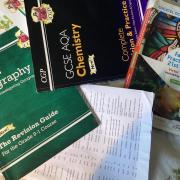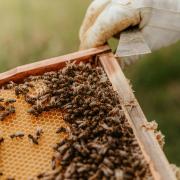
“Reduce, Reuse, Recycle” - a phrase most people likely haven’t seen since their primary school days. The beauty of this simple slogan is that it’s not only a way to teach children about waste but also reminds us that recycling ought to be the last resort.
As said by Annie Leonard: “There is no such thing as ‘away’, when we throw something away it must go somewhere”.
While my habits are still far from perfect, I’ve spent the last few months researching ways to reduce the amount of waste I accumulate. Here are some of the easiest and most impactful tips I’ve come across.
1) Look at the food you’re buying
Analysis done earlier this year by the Local Government Association (LGA) indicated that over 525,000 tonnes of plastic food packaging are used every year. Even more shockingly, only one-third of this packaging was recycled.
The best way to reduce waste from food packaging is to go to independent retailers. Big chains deal with far more stock and thus use more packaging to preserve food and to prevent damage during transportation. I’ve started buying some food from a whole foods shop near me, which offers loose pasta and lentils at a reasonable price.
Farmer’s markets are another great alternative, often offering fresher produce at a similar price thanks to the lack of any middlemen. You can find them all over London, notable examples being the Alexandra Palace Farmers Market, South Kensington Farmers Market and Borough Market
Of course, these both come with the added bonus of supporting local businesses and the people who run them!
2) Reuse your ‘disposable’ items, or make a switch to similar products that can be reused
This tip is actually incredibly simple but its impact can easily add up. I have a huge H&M bag that I acquired just over a year ago and now bring to every shopping trip. Over one billion 5p plastic bags are taken in the UK every year. Imagine the difference that could be made if every Briton brought their own bags every time they shopped! Leaving bags in the back of the car or at the bottom of a handbag can help you not to forget them.
If the products you're currently using can't be reused, consider making the switch to a reusable alternative. I've started using reusable makeup remover pads from Kiko Milano’s ‘Green Me’ range, which I bought for just over £2. While they require a little extra care, so far I’ve saved around 50 cotton wool pads’ worth of waste! Other ideas for swaps include buying a reusable razor and switching to products that come with less packaging.
3) Compost your own food waste
While food waste is (of course) biodegradable, the anaerobic conditions in some landfill heaps can prevent it from decaying properly and being cycled back into the environment. Small-scale composters can be bought for as little as £20 and are small enough to be placed in any garden or even on a balcony. They require little input and as they provide you with fresh fertiliser they could even save you money in the long run!
It’s not only easy, but sometimes even cheaper to review our daily habits and make small changes to reduce the amount of waste we accumulate. It's up to us to ensure that we live sustainably and don't impact the lives of future generations. I hope that I’ve inspired you to begin making a difference, even in a small way.



























